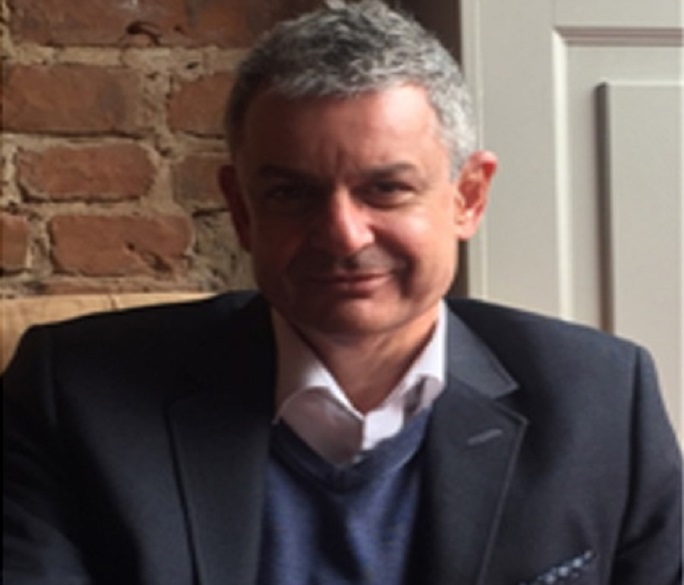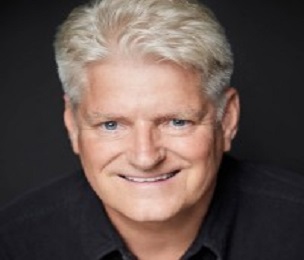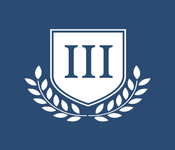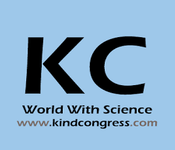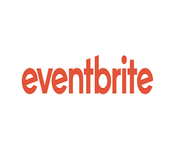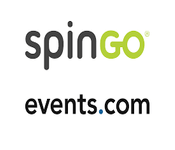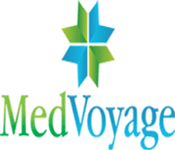Theme: Prevalence and Predictors of Depression, Anxiety, and Stress During Covid-19 Pandemic
Stress Meet 2022
- About Conference
- Sessions & Tracks
- Participation/ presentation option
- Abstract Submission Guidelines
- VISA requirements
On behalf of the Organizing Committee, we invite all the participants from all parts of the world to attend the “International Summit on Depression, Anxiety and Stress Management” scheduled during June 20-21, 2022 in Amsterdam, Netherlands
Stress Meet 2022 is the leading meeting dedicated to Psychiatrists and Stress researchers with the theme “Prevalence of stress, anxiety, depression and Stress Management during the COVID-19”. The goal is to deliver an outstanding program for the exchange of ideas and authoritative views by leading scientists which covers the entire spectrum of research in Stress, Anxiety, and Depression and share the cross-cultural experiences of various treatment procedures.
This meeting is for Psychiatrists as well as Stress committees to discuss the future of Stress and Psychiatry in terms of collaboration, structures and organizational development and advances of Stress and Psychological syndromes. The leading cause of disability is depression, Globally 350 million people suffer from depression. Problems due to depression are reported as the primary disability factor worldwide, causing nearly 40 million years of disability in people aged 20- 29 years. Factors like age, gender, and lifestyle contribute towards a person’s mental ill-health development. Some people are even experiencing more than one mental health disorder. It shows that how common certain condition all over the world gives a picture of mental health across our lifetime i.e. from childhood to teenage, working-age, adults to older.
Why to attend?
This Stress Meet 2022 conference with your support and high-quality talks from both Psychiatrists as well as Psychological committees. During the conference, we assure you that you will experience world-class facilities and hospitality at the conference.
International Conference on Depression, Anxiety and Stress Management is a unique forum to bring together worldwide distinguished academics in the field of Psychology and Psychiatry, Stress researchers, public health professionals, scientists, academic scientists, industry researchers, scholars to exchange about state of the art research and technologies. The Conference will feature many exciting academic programs including multiple panels, workshops, affinity group lunches, paper presentations, and scientific sessions by reputed psychiatrists from all over the country.
Target Audience:
- Psychiatrists
- Physicians
- Psychologists
- Specialists
- Researchers
- Health care professionals
- Professors
- Industrial Experts
- Neuropsychiatrists
- Mental health Nurses
- Nutritional Scientists
- Lecturers and Students from Academia
- Students from Academia in the research of Psychology
Track 01: Depression
Depression is a common and severe therapeutic sickness that harmfully affects how you feel the manner you ruminate and the way you react. Luckily, it is also curable. Depression causes feelings of unhappiness and/or a loss of curiosity in actions once enjoyed. It can lead to a diversity of sensitive and physical complications and can deduce a person’s capability to function at work and at home. Depression indications can differ from slight to severe and can comprise:
- Feeling depressed or having a low mood
- Loss of curiosity or desire in activities once loved
- Changes in appetite-weight loss or gain
- Difficulty in sleeping or sleeping excessively
- Loss of liveliness or increased weakness
- Feeling useless or awkward
- Difficulty thinking, focussing or taking decisions
- Thoughts of death or suicide
Symptoms must last at least two weeks for a diagnosis of depression. Also, medical situations (e.g., thyroid problems, brain tumour or vitamin deficiency) can mimic symptoms of depression so it is important to rule out general medical causes.
Track 02: Post-Traumatic Stress Disorder:
Post-traumatic stress disorder (PTSD) may be a sort of anxiety illness that a private could develop when being concerned in, or witnessing any traumatic events. The disorder was initial recognized in troopers and has been recognized by multiple names, reminiscent of 'shell shock'. However it is not solely diagnosed in troopers however conjointly a good vary of excruciating experiences will cause anxiety disorder. Anxiety disorder could also be represented contrarily in some situations: if associate degree individual’s symptoms develop over six months when experiencing trauma, this may well be selected as 'delayed PTSD' .If someone old trauma at associate degree early age or it continued for an extended time, you would possibly be associate degree analysis of 'complex PTSD'. Anxiety disorder that develops when a stunning expertise of labour is additionally called 'birth trauma'.
- Cognitive therapy
- Exposure therapy
- Eye movement desensitization and reprocessing (EMDR)
Track 03: Seasonal Affective Disorder (SAD)
Seasonal Affective Disorder is a mood disorder that happens every year at the same time. Experts believe that SAD may be related to these hormonal changes. One theory is that less sunlight during fall and winter leads to the brain making less serotonin, a chemical linked to brain pathways that regulate mood. When nerve cell pathways in the brain that regulate mood don't function normally, the result can be feelings of depressive, along with symptoms of fatigue and weight gain. Traditional antidepressants are often used to treat seasonal depression. Bupropion XL is currently the only medication that is FDA-approved specifically to prevent major depressive episodes in people with SAD.
- Circadian rhythm
- Serotonin levels
- Melatonin levels
Track 04: Social Anxiety
Social anxiety avert their gazes, show fewer facial expressions, and show difficulty with initiating and maintaining conversation. Trait social anxiety, the stable tendency to experience this nervousness, can be distinguished from state anxiety, the momentary response to a particular social stimulus. Social anxiety is nervousness in social situations. The function of social anxiety is to increase arousal and attention to social interactions, inhibit unwanted social behaviour, and motivate preparation for future social situations.
- Psychotherapy
- Support Groups
- Medication
Track 05: Sexual Abuse Disorders
Sexual abuse is considered as an undesirable sexual action with culprits harassment force generating threats or mistreatment of victims helpless to express consent. Once force is instant, short period or random, it is characterized as sexual assault. The term also covers any activity by a grownup or older teen towards a toddler to arouse any of the tangled sexually. The use of a youngster or other individuals younger than the age of consent, for sexual encouragement is mentioned as child sexual abuse or statutory rape. Substance use disorder (SUD) also called as drug use disorder; it is a state in which the exploitation of one or more constituents leads to a clinically important injury or pain. Although the term element will confer with any physical matter, 'substance' throughout this situation is limited to psychoactive drugs.
- Physical Effects
- Sexual Effects
- Interpersonal Effects
Track 06: Panic Disorder and Trauma
Panic disorder is spotted in those that expertise impulsively out-of-the-blue panic attacks and area unit engrossed with the apprehension of a repeated attack. Panic attacks occur suddenly, typically even all over sleep. An attack sometimes passes in 5-10 minutes; however it will stay for hours. It can sense like you’re having a heart failure or a stroke. If left untreated, panic disorder will characteristically cause agoraphobia, a powerful worry of being external or in bounded spaces. Psychological trauma might set in after a disturbing or dangerous event. Victims might mature extreme anxiety or PTSD, or they will have on going problems with relationships and self-esteem. But several overcome trauma, proposing motivation to others who have had life-altering damaging experiences.
- Selective serotonin reuptake inhibitors (SSRIs)
- Cognitive behavioral therapy (CBT)
- systematic desensitization
Track 07: Stress and Insomnia
Stress may be a response to risk or burden. Under stress we may have an inclination to feel worried, tensed, or on edge. The stress reaction is usually physical, too. Stress generates a stream of a hormone called adrenaline; this hormone provisionally affects the nervous system of a person. Stress will have a consequence on each ways that displaying emotion and physically, and it will have an effect on the means someone acts. Insomnia can be initiated by medical situations and psychiatric conditions, specific constituents, unhealthy sleep behaviour or certain biological factors. Insomnia can be a difficulty with too much wake effort or too little sleep effort. Insomnia itself will create variations in attitude and shifts in hormones and physiology will cause each psychiatrically problems and insomnia at the same time.
- Meditation: research has found that meditation, as well as heedfulness meditation, will deliver meaning health edges with nearly no draw back. Not solely is it helpful in managing stress, however studies have shown that it will facilitate fight sleep disorder likewise.
- Deep breathing: one of the best ways that to relax is to manage your respiratory. simply 10 deep breaths will have a positive impact, and a lot of concerned deep respiratory exercises area unit offered for increased relaxation.
Track 08: Anxiety Disorders
Anxiety disorders are a cluster/element of mental disorders categorized by feelings of anxiety and terror. It’s a usual emotion. For example, you may feel anxious when encountered with a problem at work, before writing an exam, or before making an essential decision. Anxiety disorders are diverse, though. They are assembly of mental ailments, and the suffering they cause can keep you from carrying on with your life generally. These feelings might cause physical indications, such as unsteadiness and reckless heart rate. There is a diversity of anxiety disorders: comprising generalized anxiety disorder, specific phobia, social anxiety disorder, separation anxiety disorder, agoraphobia, panic disorder, and selective autism. Anxiety disorder is a brolly term that comprises various situations:
- Panic disorder: You feel fear that attacks suddenly. During a panic attack, you may also sweat, have chest pain, and feel shakiness. At times you may sense like you’re choking or having a heart attack.
- Social anxiety disorder: Also called social phobia, this is when you feel devastating and self-awareness about normal social conditions
- Specific phobias: You feel strong terror of a particular thing or circumstances, such as altitudes or hovering.
- Generalized anxiety disorder: You feel extreme, impractical concern and tension with slight or no purpose.
Track 09: Child and Adolescent Psychiatry
A child and adolescent psychiatrist offers families the advantages of a medical education, the medical traditions of professional ethics, and medical responsibility for providing comprehensive care. The child and adolescent psychiatrist uses knowledge of biological, psychological, and social factors in working with patients. Child and adolescent psychiatrists can be found through local medical and psychiatric societies, local mental health associations, local hospitals or medical centres, departments of psychiatry in medical schools, and national organizations like the American Academy of Child and Adolescent Psychiatry and the American Psychiatric Association.
- Autism spectrum.
- Learning disability.
- Attention deficit hyperactivity disorder (ADHD).
- Gender dysphoria in children (GD).
- Eating disorders.
Track 10: Neurotic Depression
Neurotic depression is an emotionally unstable person. An ordinary dictionary definition of a neurotic is an emotionally unstable individual A definition of neurotic-reactive depression would include those patients who suffer from a depression in the context of chronic gross personality problems and a history of a stormy lifestyle. One of the most venerable debates in psychiatry has been whether patients with neurotic-reactive depressions deserve to be considered as suffering from a separate illness or disease when compared to those patients who suffer from an "endogenous depression.
- Anxious neurosis
- Depressive neurosis
- Obsessive-compulsive neurosis
Track 11: Managing Stress
The people facing the stress now they part of life. In this stress, either physiological or biological, is an organism's response to a stressor such as an environmental condition. The stress management refer to spectrum of techniques and psychotherapies aimed at controlling a person’s levels of stress. Some of the common strategies and techniques are: Self-monitoring, tailoring, material reinforcement, social reinforcement, social support, self-contracting, contracting with significant other, shaping, reminders, self-help groups, and professional help.
- Prevention and resilience building
- Exercising to reduce stress
- Theoretical explanations
- Coping mechanisms
Track 12: Autistic Spectrum Disorder
Autistic Spectrum Disorder is a progressive disorder categorized by troubles in social communication and by limited or monotonous patterns of thought and activities. Some people are slightly weakened by their symptoms, while others are rigorously incapacitated. Treatments and amenities can improve an individual’s symptoms and capacity to function. People with autism spectrum disorder could harvest other difficulties, like being intolerably sensitive to light, noise, clothing, or temperature. They will additionally experience sleep issues, digestion issues, and irritability. ASD is exceptional in that it is common for people with autism spectrum disorder to own numerous strengths and capabilities in addition to challenges.
- High-Functioning Autism
- Asperger's Syndrome
- Parenting a Child on the Autism Spectrum
Track 13: Social Support and Health
Social support is defined more precisely as psychological and substantial assets delivered by a social network that are intended at helping an individual deal with stress. Researchers usually differentiate among numerous types of social support: instrumental support which denotes to substantial aid (e.g., economical support or backing in transportation to a physician's appointment), informational support (e.g., information, education or guidance in problem-solving), and emotional support (e.g., sympathy – even though undesirable association has been validated between stress and sympathy to outsiders, encouragement, etc.) Social support can decrease the level of stress during pregnancy.
Track 14: Depression Therapy
Depression therapy comprises the alteration in the standard of living. Mainly Workout, systematic exercise can be as operative at treating depression as medication. Not only do exercise increase serotonin, endorphins, and other feel-good brain substances, it generates the progression of new brain cells and networks, just like antidepressants do. Psychological treatments that have been found to be operative as depression treatment contain Cognitive Behaviour Therapy (CBT), Interpersonal Therapy (IPT), and Mindfulness-based treatments. Individuals might also be offered an antidepressant, either on its own or in arrangement with a speaking treatment. Depression Treatment contains different types of antidepressants such as mono amine oxidase inhibitors, selective serotonin reuptake inhibitors, serotonin and norepinephrine re uptake inhibitors, tricyclic-related drugs and other antidepressants. Smartphones and tablets that offer mobile health apps, such as support and general education about depression, are not a substitute for seeing your doctor or therapist. For some people, other procedures, sometimes called brain stimulation therapies, may be suggested:
- Electroconvulsive therapy (ECT).
- Trans cranial magnetic stimulation (TMS).
Track 15: Personality Disorder
Personality disorder characterized by maladaptive patterns of behaviour and inner experience exhibited across many contexts and deviating from those accepted by the individual's culture. Official criteria for diagnosing personality disorders are listed in the Diagnostic and Statistical manual of mental disorder (DSM) and International Classification of diseases (ICD). It defined psychologically, is the set of enduring behavioural and mental traits that distinguish individual humans. Hence, personality disorders are defined by experiences and behaviours that differ from social norms and expectations. Many issues occur with classifying a personality disorder. Because the theory and diagnosis of personality disorders occur within prevailing cultural expectation, their validity is contested by some experts on the basis of inevitable subjectivity.
- Cluster A personality disorders
- Paranoid personality disorder
- Schizoid personality disorder
Track 16: Yoga and Holistic Health
Yoga is initiated in early India, which is a collection of physical, mental, and mystical practices or disciplines. There is a wide diversity of yoga schools, practices, and objectives in Hinduism, Buddhism, and Jainism. Among the most renowned types of yoga are Hatha yoga and Raja yoga. Yoga benefits one to learn to control the reaction of stress. Practice asana and pranayama daily as they attach the body with the moods of the mind.
Holistic Health is really an approach to life. Rather than concentrating on illness or certain parts of the body, this ancient method reflects the entire individual and how he or she relates with his or her environment. It accentuates the assembly of mind, body, and spirit. The goal is to accomplish maximum well-being.
- Proper relaxation
- Proper breathing
- Proper exercise
Track 17: Psychopharmacology
Psychopharmacology is demarcated as a scientific study that deals with the influence of medicines have on mood, perception, discerning, and activities. Psychopharmacology is differentiated from Neuropsychopharmacology that highlights the relationship between drug made changes within the working. Psychoactive drugs relate mainly with specific receptors or a target site found in the nervous system to persuade pervasive change of cells within the nervous system and alters the consciousness and behavioural changes in psychological or physiological functions.
- Early psychopharmacology
- Modern psychopharmacology
Track 18: Phobia and its Therapy
A phobia is a kind of anxiety disorder, demarcated by an insistent and extreme fear of an object or condition. The phobia typically results in a sudden commencement of terror and is present for more than six months. The exaggerated person will go to countless extents to elude the circumstances or object, to a degree larger than the genuine danger posed. If the dreaded object or situation cannot be evaded, the affected person will have substantial distress.
Cognitive behavioural therapy (CBT) can be useful by permitting the tolerant to encounter dysfunctional opinions or beliefs by being aware of their own feelings, with the goal that the patient will understand that his or her fear is irrational.
- Exposure therapy
- Cognitive behavioral therapy (CBT)
Track 19: Suicidology
Suicidology is the combination of suicidal behaviour and suicide preventions. Suicidology studies not only death by suicide and attempted suicide but also partial self-destruction, suicidal ideation, parasuicide, and self-destructive behaviours and attitudes. This can be intentional or unintentional. Some examples are alcoholism, risky sports, some sexual disorders, and eating disorders.
Track 20: Mental Illness
The Mental Illness is affecting your behaviour such as way of behaviour, your stage of mind and significant distress of personal functioning. This may be associated with particular regions or functions of the brain, often in a social context. A mental disorder is one aspect of mental health. A mental health concern becomes a mental illness when on-going signs and symptoms cause frequent stress and affect your ability to function. There classification below
- Neurodevelopmental disorders
- Schizophrenia spectrum
- Somatic symptom and related disorders
- Feeding and eating disorders
- Sleep-wake disorders
- Other mental disorders
- Paraphilia disorders
Oral presentation: Oral Presentations may include the topics from researches, theoretical, professional or private practices in a concise manner. Individuals with personal experience are also welcome to present personal experience or narratives which help others in everyday life.
Speakers with a 30-minute the slot should plan to speak for 20-25 minutes, and Keynote speakers should plan to speak for 40-45 minutes, with the remaining time to be used for questions and discussion by the Session Chair.
Workshop: For workshop presenters also, the topic of the talk will be the same as Oral presentation with more specialized techniques and detailed demonstration. The generalized time duration for a workshop presentation is about 45-50 minutes. Interested participants can join with their respective team and present the workshop with their research coordinators with special group waivers on registration.
Poster presentation: Student Poster Competition will be organized at Stress Meet 2022 conference is to encourage students and recent graduates to present their original research. Presenters will be given about 5-7 minutes to present the poster including questions and answers. Judges may ask questions during the evaluation of the presentation. This is an opportunity for young scientists to learn about the recent findings of their peers to increase their capacity as multidisciplinary researchers. Poster displays will be in hard copy format of 1x1 M long.
For more details regarding Poster Presentation and Judging Criteria view Poster Presentation Guidelines.
Webinar: The webinar presentation is designed for those interested attendees who cannot join in person due to schedule conflicts or other obligations. In this option, the presenter may record the presentation and their presentation will be presented in the Webinar presentation session.
E-Poster: e-Poster is also similar to the webinar presentation. In this session, their presentation will be published in the form of a poster in the conference website and the presenter abstract will be published in the conference souvenir and journal with DOI.
Exhibition: Stress Meet 2022 has the opportunity to exhibit the products and services from commercial and non-commercial organizations like Drug manufactures, Clinical Trial Sites, Management Consultants, Chemists, Pharmacists, Business delegates and Equipment Manufacturers.
To know more about exhibitor booth details and benefits visit WHY TO EXHIBIT WITH US?
Send your queries to [email protected]
Advertisement: The conference program is a valuable resource that all attendees refer again and again as they navigate the conference. Advertising in the conference program is a great way to market and can help you secure long term business.
Send your proposal to [email protected] to know the available advertisement options and prices
Sponsor Stress Meet 2022
Premium Sponsorship package
Additional Sponsorship package
Mail the program manager at [email protected] or WhatsApp on (+44 1371 290000) to know more about the sponsorship packages.
How to submit an abstract/ article?
Submissions of abstracts are welcome in all topics related to Stress Meet 2022 Please see below for submission guidelines.
The entire accepted abstracts for the registered participants will be published in the Open Access conference supporting journal and conference souvenir.
- Abstracts can be submitted through the online link ABSTRACT SUBMISSION
- Abstracts must be submitted in English and should be within 250-300 words along with a biography of the presenter of 60-70 words
- Submissions are welcome in all topics related to Neurology & Neuroscience.
- Presenting the author shall provide the following details: Full name of the presenter, Affiliation details: department, institution/hospital, country, Phone number & E-mail address and photograph
- For Co-authors following details are required: Full names and affiliation details like department, institute/ organization name, country shall be included
- All abstracts will be reviewed by a review panel approved by the Stress Meet 2022 Conference Review Committee. The Committee’s decision is final.
- All presenters of accepted abstracts will be required to register and pay for attendance at the Conference.
Please note your affiliation and abstract title in both the final program and the journal will appear exactly as you submit it so please follow the guidelines provided as to the format required and the letter of acceptance does not imply any travel grant or any bursaries.
Next steps
Email confirmation for the submitted abstract will be sent upon successful acceptance of the abstract. If the abstract is accepted, presenters require to confirm the presenter/s and pay the applicable registration fee/s. Failure to do so may result in your paper being excluded from the Stress Meet 2022 conference program
How to complete registration?
To complete the registration, visit the ONLINE REGISTRATION. The following registration categories are available
The participants from University/ Academic backgrounds shall enrol their participation in the Academic category
Available Registration option under this category: Oral Presentation | Poster Presentation | Delegate Registration | Package A (includes your registration and 2 nights of accommodation) | Package B (includes your registration and 3 nights of accommodation) | Webinar
For the business person, shall enrol their participation in Business category
Available Registration option under this category: Speaker registration | Delegate Registration | Package A (includes your registration and 2 nights of accommodation) | Package B (includes your registration and 3 nights of accommodation) | Advertisement | Exhibitor
The participants who are still pursuing their education shall enrol their participation in the Student category.
Available Registration option under this category: Speaker registration | Poster presentation | Delegate registration | Package (includes registration and 2 nights of accommodation).
Apart from any above-mentioned category please drop a mail to [email protected] for GROUP REGISTRATION, EXTRA NIGHT OF ACCOMMODATION, ADVANCE TOKEN AMOUNT PAYMENT, MORE THAN ONE PRESENTATION etc... These options are available on special request and discussion with the management
Stress Meet 2022 organizing committee hereby reiterates that we are NOT involved in VISA processing. We can assist by providing supporting documents like a Letter of invitation, Letter of Abstract Acceptance and Registration Payment Receipt.
You may be required to submit additional documents along with these documents to the embassy.
Letter of Invitation: The official Letter of Invitation is proof that your submitted paper and registration application are accepted by the conference committee board. It will be stated in English and may help you in your visa application.
* Only registered participants will get an official letter of invitation
* Attendees need to finish Registration & Authenticated information submission to get an official letter of invitation [i.e., Passport (Scan copy), DOB, Mobile Number, Physical Address and Photograph].
*Contact program manager for more information
• Official Letters of Invitations will be provided only to attend the conference.
**SHOULD YOUR APPLICATION BE DENIED, Stress Meet 2022 ORGANIZING COMMITTEE CANNOT CHANGE THE DECISION OF THE MINISTRY OF FOREIGN AFFAIRS, NOR WILL WE ENGAGE IN DISCUSSION OR CORRESPONDENCE WITH THE IND, MOFA OR THE EMBASSY ON BEHALF OF THE APPLICANT **
Conference Highlights
- Depression
- Post-Traumatic Stress Disorder
- Seasonal Affective Disorder (SAD)
- Social Anxiety
- Sexual Abuse Disorders
- Panic Disorder and Trauma
- Stress and Insomnia
- Anxiety Disorders
- Child and Adolescent Psychiatry
- Neurotic Depression
- Managing Stress
- Autistic Spectrum Disorder
- Social Support and Health
- Depression Therapy
- Personality Disorder
- Yoga and Holistic Health
- Psychopharmacology
- Phobia and its Therapy
- Suicidology
- Mental Illness
To share your views and research, please click here to register for the Conference.
To Collaborate Scientific Professionals around the World
| Conference Date | June 20-21, 2022 | ||
| Sponsors & Exhibitors |
|
||
| Speaker Opportunity Closed | |||
| Poster Opportunity Closed | Click Here to View | ||
Useful Links
Special Issues
All accepted abstracts will be published in respective Our International Journals.
Abstracts will be provided with Digital Object Identifier by




